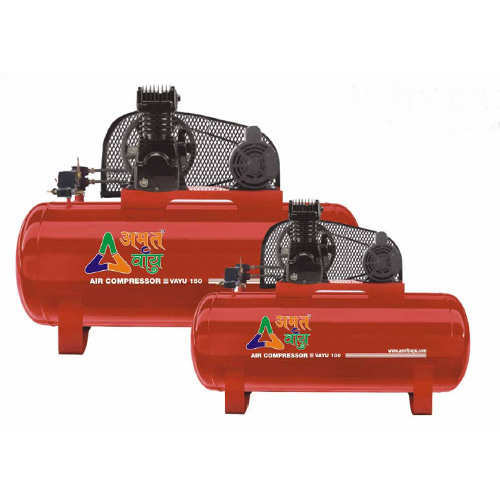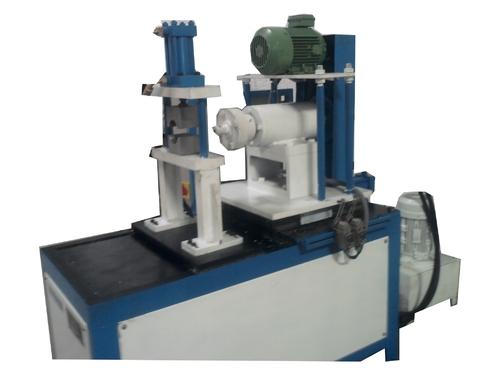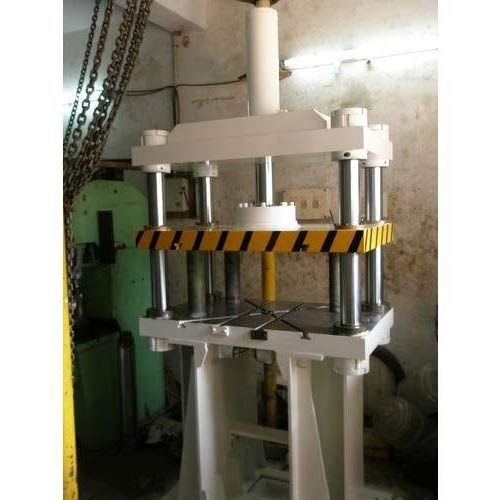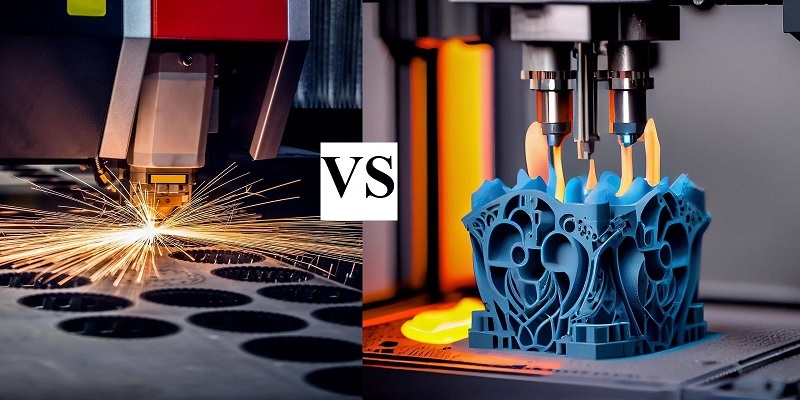Schedule a Call Back
Globalisation - A Growth Driver for Indian Machine Tools Industry
 Technical Articles
Technical Articles- Jun 14,10
Abstract
Machine tool is a technology-driven area. Strong R&D and innovation is the need of the hour to cope with the rapid changes in technology. A survey has been conducted to study the current global trends in machine tools industry and the expectations of the customers of various segments such as automobiles, railways, defence and general engineering industries. The outcome of this study will be helpful to guide machine tools companies to realise the need of customer centric R&D and innovation, that will help in bridging the technology gaps in products and processes to ensure sustained growth and long term survival.
Introduction
Since 1990, India has emerged as one of the wealthiest economies in the developing world. During this period, the economy has constantly grown, albeit a few major setbacks. The economy of India recorded a GDP growth rate 9% for the fiscal year 2007-08, making it the second fastest growing economy in the world.
India ranks 14th in the world in factory output accounting for 27.6 per cent of GDP. Post liberalisation, economic reforms brought in foreign competition that led to privatisation of certain public sector enterprises, opened up sectors hitherto reserved for the public sector and led to an expansion in the production of fast moving consumer goods. The government is giving thrust to manufacturing sector at the right time when the world is looking at India as a manufacturing hub for global requirement. The Indian manufacturing base is the 4th largest emerging economy in the world. The next five to seven years are very critical.
What is a Machine Tool?
Machine tool is a power driven machine that shapes metallic materials to produce components which can reproduce it self as well as other machines. Machine tools are important and critical equipments used in manufacturing sector for basic and precision engineering/processing work. These are characterised by long operating life, high unit price, high technology and involving assembly of number of components and critical parts. Machine tools cater to automobile, tractors, bearings, railways, power, defence and general engineering industries, and are contributing significantly in the development of manufacturing sector. The objective is to ensure sustained growth of 15-20 per cent which will not be feasible unless proper thrust is given to machine tools manufacturing sector. The need of the hour is to globalise the machine tools industry of India to cater to the rising expectation and requirements of automobiles, railways, defence, aerospace and other engineering industries to give the required boost to manufacturing sector. Being an integral sector, growth of machine tools industry has an immense bearing on the entire economy, especially India's manufacturing industry. It is even more crucial for the development of the country's strategic segments such as defence, railways, space and atomic energy.
Machine Tools production started in India in 1950 with the commissioning of the first factory of HMT at Bangalore in collaboration with Oerlekon Switzerland to catalyse industrial growth. Subsequently, the machine tools market grew by leaps and bound and HMT stood and remained a leading machine tools company till 2004.
Post liberalisation era witnessed radical changes and economic reforms brought in foreign competition and participation of private sector companies in the field of machine tools business. The world over too, industralised advanced countries have created market niches on the back of a well developed and supported Machine Tools sector.
Manufacturing Range
The Indian machine tools industry manufactures almost the complete range of metal cutting and metal forming machine tools. Customised in nature, the product from the Indian basket comprises conventional machine tools as well as computer numerically controlled (CNC) machines. There are other variants offered by Indian manufacturers too, including special purpose machines, robotics, handling systems and TPM-friendly machines.
Machine tools industry in India comprises about 450 manufacturers with 150 units in organised sector. Almost 80 per cent of production is contributed by ten major companies of this industry. The industry has an installed capacity of over Rs 2000 crore and employs a work force of totaling 45,000 skilled and unskilled personnel. Machine tools industry in India is scattered all over the country. The hub of manufacturing activities, however is concentrated in places like Mumbai and Pane in Maharashtra; Batala and Ludhiana in Punjab; Ahmedabad, Baroda, Jamnagar. Rajkot and Surendranagar in Gujrat; Coimbatore and Chennai in Tamil Nadu; some parts in east India; Bangalore in Karnataka. Bangalore is considered as the hub for the Indian machine tools industry. The city, for instance, houses HMT Machine Tools Ltd and Ace group, two machine tools giants that manufacture nearly 40% of the total industry's output.
User Sector
The user sector of machine tools are automobiles and auto ancillaries, railways, defence, agriculture, steel, fertilizers, electrical, electronics telecommunication, textile machinery, ball and roller bearings, industrial valves, power driven pumps, multi product engineering companies, earth moving machinery, compressors and consumer durables like washing machines, refrigerators, television sets, watches vacuum cleaners, air conditioners, etc.
Current Status
Performance data indicated in Table-1 shows that Indian machine tools industry is not globalised as industry export has remained stagnant (4.8 to 7.8 per cent) in last five years. Import has shown phenomenal growth of 900 per cent during the same period. We have negligible presence in the international market. There is a huge gap between production and consumption which justifies the immense growth potential of Indian Machine Tools industry. It also indicates that we are not even satisfying our indigenous customers.
Why Indian Machine Tools Companies are not Globalised?
India is not very globalised. There are pockets of globalised companies. In fact there very few companies which are going global. There are organisations which are associating with foreign companies and integrating themselves in to global world. To some extent, it is because of talent pool, which went abroad and never returned to their homeland and that's why India has not been able to gain expertise in international market. Further the disadvantage of being a big country is that we are some what internally oriented. This is because so much is happening in our country that we tend to forget what is happening out side the country. There is a big divide between top and bottom layer of the industry which calls for immediate attention of policy makers and industry stalwarts.
Innovation often comes from small and medium companies (SMEs). It is the large companies who take their idea and develop the product. So there should be a link between the two. There should be a mechanism of information flow between company, university and international firms. SMEs, therefore, can give a required boost to innovation and R&D. Large companies can take innovation forward and internationalising them, producing in large scale and improving the quality. So, the role of large companies can never be downplayed in the whole innovation chain. Today, SMEs can really enhance their skill set and their knowledge by knowing what is going on at the international level, the need to broaden their mindset to be willing to look beyond their boundaries.
Basically Indians are creative, innovative and willing to accept challenges. Potential to innovate is present here. We have to invest and create an environment for innovation to support and strengthen R&D and innovation. The success story of Indian Software Industry can work as role model in making the Indian Machine Tools Industry a global player. The need is to have customer focus and work tirelessly on innovation techniques and R&D.
Indian machine tools industry is also lagging behind in terms of productivity as compared to global bench mark companies such as Studer-Schaudt-Microsa (Europe), Kellenberger (Swiss), Voumard (Germany), Mazak, Makino (Japan) and other European and Japanese companies. This is the critical aspect which needs urgent attention by giving the required thrust to productivity improvement techniques and programmes to ensure long term survival and global competitiveness. Japanese techniques like, Kaizen (step by step improvement) and SGA (Small Group Activities) can serve a great deal of purpose. The base lies in understanding the customer needs.
Machine tools is technology driven area, therefore strong R&D (Research and Development) and innovation is a must. Efforts within the industry must be on to better the features of CNC machines and provide further value addition at lower cost to meet the rising expectations of the customers. Computer Numerical Controlled (CNC) machines segment could be driver of growth for the machine tools industry in India. World class product and technology can only be developed by continuous R&D and innovation in competitive market.
Analysis & Results
During preliminary survey and discussions with customers of various segments, it was revealed that market requires Zero "BAD" and Zero "COB" machines. Zero BAD means zero Break down, zero Accident and zero Defect. Zero COBS means zero coolant leakage, zero oil leakage and zero burs. There has been a wide gap in technology and processes of products as compared to global products, which needs immediate attention. Current global trend demands:
- Highly reliable CNC machines with zero down time
- Machines with 'plug & play' feature to reduce installation time.
- Multi tasking machines to reduce per piece cost.
- Compact machines with minimum foot print to save costly floor area.
- Ultra precision machines with sub micron accuracy (for Defence and Aerospace).
- High degree of automation to increase productivity.
- Intelligent machines with remote diagnose to avoid dependence on after sales service.
During discussions with machine tools builders it was surprising that most of the machine tools companies appear to adopt conventional set up of design department which also takes care of development of new products, which lacks customer focus. Globalisation demands for exclusive R&D and innovation in products and processes to cope up with rapid changes in technology. Concept of KM (Knowledge Management) is also not existing which is of prime importance to utilise the knowledge of the skilled people who have left the organisation.
There are other customers and product related issues which need immediate attention and study in the context of Indian machine tools industry.
- Quality and reliability of products
- Cost of product
- Delivery of product
- Lack of IT (Information Technology) enabled after sale services.
- Response to the customer
- Lack of customer focus in Product design.
- Lack of R&D and innovation
- Lack of computer integrated intelligent manufacturing system.
- Retention of talented human resource.
- Lack of training and development of human resource
Conclusion
Indian machine tools industry has great potential to become global player provided it focuses on right objectives. First and foremost innovation succeeds where there is a competition. Secondly, you need to give required thrust on R&D activities which are almost negligible in Indian machine tools industry. It is a fact that India houses top notch universities in the world. Yet hiring the best in class employees does not mean that you do not need to invest for their skill developments. Studies reveal that only 16% Indian companies spend on skill development of their employees which is 1/6th of the amount spent in Korea and 1/3rd of China.
Indian companies need to have an understanding and appreciation of intellectual property because R&D and innovation is a costly activity. Then we need to have thorough understanding of users and their specific need. Classic examples are Tata Nano and Godrej Refrigerator, which are designed taking into consideration the specific needs of consumers. This type of creative innovation is not happening in other sectors including machine tools. Indian organisations are quite hierarchical in nature and organisations with such structures do not promote innovation. We need to give respect and authority to the internal entrepreneurs, so that they can come up with new and better ideas. Further, the Indian machine tools industry needs to invest heavily in project management because of quality of out put and the time to the market are two deciding factors for achieving success in the field of innovation and R&D.
(P K Saxena, Joint GM, Design, HMT Machine Tools Ltd
Mobile: 099280-16140. Email: mtadesign1@hmtmachinetools.com)
Related Products

Single Stage Air Compressor
Amrit Vayu Equipments is offering single
stage air compressor.

Hydraulic Chamfering Machine
Vedant Engineering Services engages to
provide a wide range of hydraulic chamfering machine.

Four Pillar Hydraulic Press
Fluidtec Controls engages as a manufacturer
and supplier of four pillar type hydraulic press.













